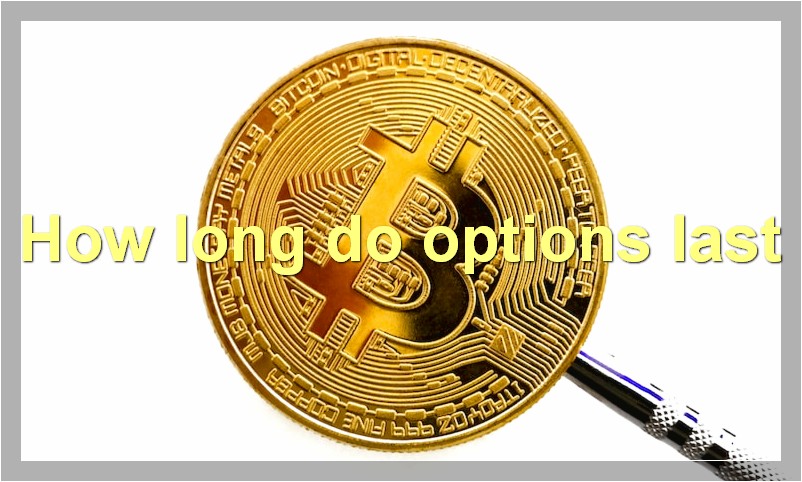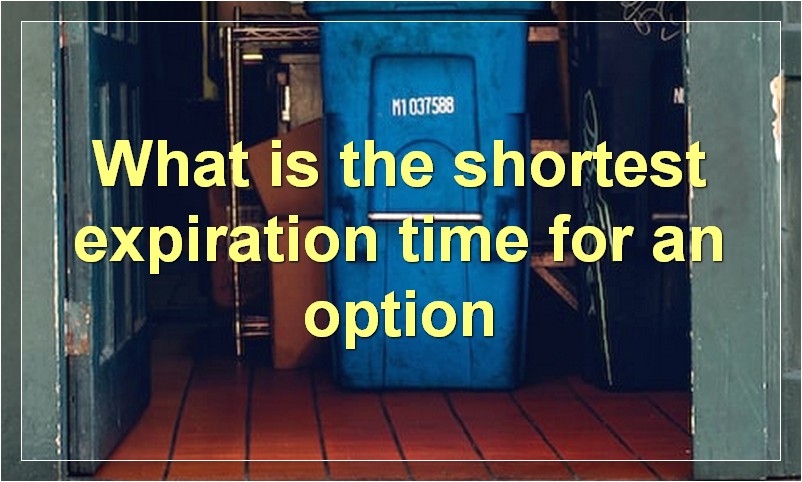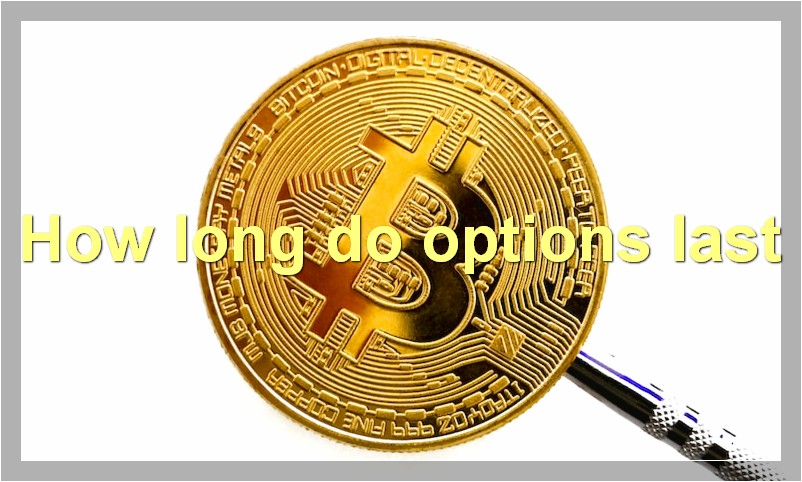If you’re thinking about investing in options, it’s important to know the expiration times for different types of options. Read on to learn more about expiration times and how they can impact your investment strategy.
What is the typical options expiry time
An option is a contract that gives the holder the right, but not the obligation, to buy or sell an underlying asset at a specified price on or before a certain date. Options are traded on many different underlying assets, including stocks, commodities, currencies, and indexes.
The specified price at which the option can be exercised is called the strike price. The date on which the option expires is called the expiration date. When you buy an option, you pay a premium for the right to buy or sell the underlying asset.
Options are classified as either calls or puts. A call gives the holder the right to buy the underlying asset, while a put gives the holder the right to sell the underlying asset.
The most common expiration time for options is one month. However, options can also expire in as little as one day or as long as one year. The expiration time will depend on the type of option and the underlying asset.
How long do options last

If you’re thinking about investing in options, you might be wondering how long they last. The answer depends on the type of option you’re considering.
There are two main types of options: call options and put options. Call options give you the right to purchase a stock at a certain price, while put options give you the right to sell a stock at a certain price.
Options can be short-term or long-term. Short-term options last for a few weeks or months, while long-term options can last for years.
The expiration date is the date when an option expires and can no longer be traded. For short-term options, the expiration date is typically one to three months from the date of purchase. For long-term options, the expiration date is usually one to three years from the date of purchase.
You can close out your position at any time before the expiration date by selling your options. If you hold onto your options until the expiration date, you’ll either exercise your option or let it expire.
If you exercise your option, you’ll buy or sell the underlying stock at the strike price. If the stock is trading below the strike price (for call options) or above the strike price (for put options), you’ll likely let your option expire worthless.
Options can be a great way to hedge your portfolio or speculate on the future direction of a stock. However, it’s important to understand how they work before you invest. Otherwise, you could end up losing money.
When do options expire
Assuming the question is asking about stock options:
In the United States, stock options expire on the third Friday of the expiration month. If Friday is a holiday, the expiration date will be on the Thursday before.
For example, if an option expires in March, it will expire on the third Friday of March. If that day is a holiday, then it will expire on the Thursday before.
The expiration date is important because that is when the option contract expires. On the expiration date, the option contract becomes void and worthless.
What happens when options expire
If you don’t sell your options before they expire, you will automatically forfeit them and lose any money you have invested.
Can you extend the expiration date on an option
Yes, you can extend the expiration date on an option, but there are some conditions that must be met in order to do so. First, you must have a written agreement with the other party to the option contract that allows for extensions. Second, the underlying security must still be trading on the exchange where the option is listed. And finally, you must notify the exchange of your intention to extend the expiration date prior to the expiration date itself. If all of these conditions are met, then you can extend the expiration date on an option.
What is the shortest expiration time for an option

There is no definitive answer to this question as it depends on a number of factors, including the type of option, the underlying asset, and the market conditions. However, expiration times for options can range from a few minutes to several months.
How far in advance can you purchase an option
When it comes to options, the general rule is that the earlier you buy, the better. This is because, as with most things in life, the closer you get to the event, the more expensive it becomes. So if you’re looking to save some money on your options purchase, buying early is usually the way to go.
Of course, there are always exceptions to the rule. If you’re buying an option for a highly anticipated event that is sure to sell out, it may be worth it to pay a little extra to guarantee your spot. And sometimes special circumstances arise where an option becomes available at a deeply discounted rate shortly before the event – so it’s always worth keeping an eye out for last-minute deals.
In general, though, the earlier you can purchase your option, the better. So start planning ahead and you’ll be sure to get the best possible price on your tickets!
Do all options expire at the same time
Many people don’t realize that all options don’t expire at the same time. The expiration date for an option is the last day that the option can be traded. After that, the option is worthless. The expiration date is different for each type of option. For example, stock options usually expire on the third Friday of the month, while index options typically expire on the third Saturday of the month.
This can be important to know if you’re trading options, because you need to make sure you sell or exercise your options before they expire. If you don’t, you’ll simply lose the money you’ve invested in the option.
Is there a limit to how many times you can renew an option
There is no limit to how many times you can renew an option. You can renew an option as many times as you want, provided that the underlying asset still exists and that the market conditions are favorable.
What factors affect the expiration time of an option
The expiration time of an option is the date and time when the option contract expires and is no longer valid. The factors that affect the expiration time of an option are the type of option, the underlying asset, and the market conditions.

